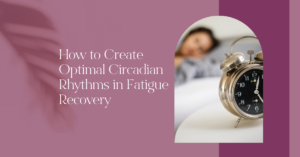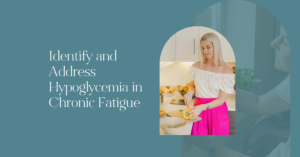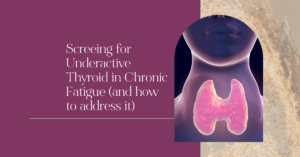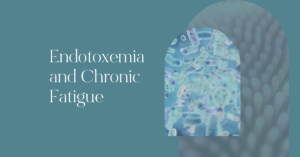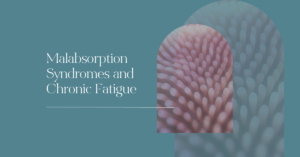If you are wondering if your digestion is impacting your energy levels, the short answer is, probably yes. There are many links between digestion and fatigue.
The more complex answer is that there are many ways that digestive health can impact energy. Understanding what digestive imbalances are specific and relevant to you, may help you further understand how you can support your energy by addressing your gut health.
An Brief Lesson in How Digestion Works
The best way to understand the digestive system is from the top down or North to South. Imbalances higher up may impact imbalances further down the chain and therefore, as you assess your own digestion you may want to work through each piece in order:
Brain and Nervous System
The brain senses the availability of food and that we are going to eat a meal and begins to send signals, via the nervous system, to prepare the body to digest your meal. Stress, poor vagal tone or brain inflammation and injury can all interfere with this part of digestion.
The Mouth
The mouth is where food enters the body and as we begin to chew, we further stimulate digestion and the production of digestive enzymes and acids. Proper chewing is an important part of digestion.
The Stomach
The stomach is where you produce stomach acid which begins to further degrade food which has been chewed. Stomach acid which is too low or too high can be problematic. H.pylori is a common infection which can negatively impact stomach acidity and is worth screening for at this stage.
The Small Intestine
Digestive enzymes and bile are released into the small intestine to facilitate the breakdown of macro and micro nutrients in food. We also need a healthy liver and gallbladder for bile production and a healthy pancreas for the production of pancreatic enzymes. The small intestine is where many macronutrients, such as lipids, amino acids and carbohydrates, and micronutrients such as B-vitamin, minerals like iron, zinc and chromium and fat soluble nutrients are absorbed. Bacterial overgrowth of the small intestine, intestinal autoimmunity (e.g. celiac disease) and intestinal permeability can impact the absorption of these nutrients can cause malabsorption syndromes.
The Colon
The colon is the home to trillions of bacteria which collectively make up the microbiome. In the colon we absorb water, electrolytes, vitamin K, biotin and short chain fatty acids but the role of the gut microbiota which live here have multiple roles in immune signalling, influencing mitochondrial metabolism and maintaining the epithelial barrier and its function.
Digestion and Fatigue: What Can Go Wrong?
The final common pathway to fatigue is poor production of the body’s energy currency, ATP. Fatigue is an inefficiency to produce ATP but there are many different mechanisms by which ATP can be affected. Here is how digestive imbalances may contribute to poor production of ATP…
Maldigestion and Fatigue
Improving digestion, improves fatigue. The first step in making energy is eating food. And digestion is essential to break down and extract energy and nutrients from our food. Macronutrients (proteins, fats and carbohydrates) are broken down and enter the body’s energy cycles; glycolysis, krebs-cycle and electron transport chain.
Micronutrients act as cofactors for enzymes that support these energy cycles and without them, we cannot make energy effectively.
Another link between digestion and fatigue is micronutrients, such as Vitamin B12, folate and iron, which are responsible for the production of healthy red blood cells. If these nutrients cannot be liberated from food, this can lead to conditions such as anaemia which are characterised by fatigue due to poor oxygen transport.
If you eat and you get bloated, bowel urgency and heartburn, if you have difficulty tolerating protein, fats or you avoid these foods, if you experience fatigue after eating (even when blood sugar is balanced), you may have a problem digesting, and therefore absorbing your food and therefore you aren’t getting the materials you need to make energy due to malabsorption.
The bulk of digestion happens in the brain, mouth, stomach and small intestine, therefore some or all of these areas may need support.
To ensure better digestion you want to:
- Support your nervous system so that you can connect brain to gut and produce appropriate digestive secretions such as stomach acid, pancreatic enzymes and bile.
- Make time for meals so that you can sit down and properly chew each mouthful
- Address underlying infections, such as H.pylori, which may compromise stomach acid production
- Support the gallbladder for healthy bile flow for fat digestion
Malabsorption and Fatigue
Once food has been digested it needs to be absorbed. If the gut lining is damaged, inflamed or “leaky”, nutrient absorption will be poor.
Symptoms of malabsorption syndrome can vary widely but often include:
- Diarrhoea
- Weight loss or inability to gain weight due to muscle wasting
- Abdominal pain or discomfort
- Bloating and gas
- Weakness and fatigue
- Vitamin and mineral deficiencies, leading to various complications like anaemia, osteoporosis, and neurological problems
- Deep muscle or bone pain
- Chronic muscle spasms
- Easy bruising and bleeding gums
- Loss of menstrual cycles in women
- Abnormal stools; blood in stools, steatorrhea, clay coloured stools
- Inflammation of the tongue or coated tongue
- History of Autoimmune disease
There are many factors that affect gut membrane permeability, these include:
- Autoimmune diseases such as Celiac Disease, Crohn’s Disease, Ulcerative Colitis and Autoimmune Gastritis
- Infections; yeast, mold, parasites
- Stress and Nervous System Dysregulation
- Excessive saturated fats consumption
- Excessive fructose consumption
- Frequent eating
- Dysbiosis
- Small Intestinal Bacterial Overgrowth (SIBO)
- Excessive glucose consumption as oxidative stress from blood sugar imbalances can cause intestinal permeability
- Excessive sodium consumption
- Gluten in sensitive individuals
- Emulsifiers
- Hexane
- Food Glue
- Nanometric Particles
- Chemicals from food packaging e.g. BPA
When addressing digestion and fatigue, the solution is to address imbalances upstream (e.g. maldigestion), address possible causes as listed above and give the body what it needs to recover and repair the gut barrier.
To learn more about supporting Malabsorption Syndromes, refer to this post.
Inflammation, Immune Activation and Fatigue
A further consequence of leaky gut / intestinal permeability is that it usually comes hand in hand with inflammation. 80% of the immune system is located in and around the gut epithelial layer and when the gut is inflamed there can be spillover into the rest of the body.
We all know how it feels to have an acute bout of the flu; fatigued, achy, brain foggy, low in motivation and even small tasks can be exhausting. These symptoms are not the flu virus per se, but rather the consequence of energy being prioritised towards the immune system to help the body manage the threat of the invading pathogen.
This could be a gut pathogen or it could also be food sensitivities activating the immune system or endotoxins from bacteria travelling into the bloodstream adding to toxic load and altering mitochondrial metabolism.
All of the above means that energy is prioritised to dealing with the threat and away from health and vitality and the consequence is usually a foggy brain, mental and physical exhaustion and aches and pains. To restore wellbeing, infections and imbalances must be addressed and the gut membrane must be repaired.
To address digestion and fatigue, supporting the gut immune system requires a top down approach. Therefore, we still need to address brain and nervous system health, chewing and swallowing, digestive secretions and the health of the small intestine and gallbladder. Once these steps have been taken the following may be useful additional interventions:
- Removing food, chemical and pathogenic triggers
- Supporting the body with anti-inflammatory foods
- Supplemening with L-glutamine to restore barrier integrity
- Using vitamin A and vitamin D to support regulatory T (Treg) cells which are cells that suppress excessive immune reactions and create a balance within the immune system
- Encouraging the production of short chain fatty acids (SCFAs) by consuming a diet which contains a diverse numnber of plant based fibres. SCFAs may have a positive impact on Treg cells.
Microbiome and Fatigue
There are many different bacterial species in the gut and different species impact the body in different ways. For example, some bacteria may positively affect the conversion of thyroid hormone T4 to the active hormone, T3. Other bacteria may play a role in blood sugar stability, which is also important for stable energy.
Conversely, certain bacteria, for example desulfovibrio piger may produce H2S gas which has been known for years as a toxic gas and environmental hazard which can inhibit mitochondrial function and therefore diminish ATP production.
Ultimately we want a microbiome which has a diverse range of different species that can work synergistically instead of too many of certain types, dysbiosis.
A diverse diet can encourage diversity of bacteria in the gut and the health benefits associated. This can be achieved by eating 20-30 different plant-based foods per day.
Factors which impact the balance of the microbiome include:
The microbiome is impacted by many things such as:
- Medications
- Antibiotic use
- Breast feeding
- Vaginal vs C-section birth
- Birth Control (oral contraception)
- Infections (bacterial, parasitic)
- Diet (e.g. low fibre, high fat and sugar vs high plant matter)
- Exercise
- Stress and Trauma
- Environmental Toxins
Therefore, we want to do more of the things that encourage healthy bacterial diversity (good diet, regular movement, stress management, reduce toxic load) and less of the things that encouarge a dysbiotic gut (medications, antibiotics, unaddressed infections, high sugar / low fibre diet, excessive exercise).
What Tests Could Be Helpful?
Many of our clients understand the link between digestion and fatigue and will do testing to help us personalise their digestive health and fatigue recovery journey. Tests commonly used include:
GI Effects Comprehensive Stool Test (Stool) – screens for possible infections such as bacteria, parasites and yeast overgrowth, markers for maldigestion, markers of gut immune function, short chain fatty acid production, bacterial diversity and dysbiosis.
Cyrex Array 2 (Blood) – screens for para- and trans-cellular intestinal permeability and endotoxemia.
Organic Acid Test (Urine) – can indicate bacterial and urine overgrowth
What to do now?
By now you hopefully understand several of the mechanisms by which digestive health could be impacting your energy levels, but what to do about it?
We work with our clients to identify if and what digestive imbalances could be contributing to their overall health picture and we create a road map to restore optimal digestive balance.
If you are interested in working with us, find out more here.




